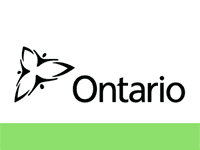The Ontario government is providing an additional $14.75 million to increase access to mental health and addictions services across the province. This funding will help support people from all walks of life during this unprecedented time, including families, young people, children, frontline workers, and Indigenous communities.
The details were provided last week by Premier Doug Ford and Michael Tibollo, Associate Minister of Mental Health and Addictions.
“We know mental health is just as important as physical health,” said Premier Ford. “Everyone, including our heroic frontline workers, can sometimes experience burnout, depression or anxiety. Even though you may feel alone or helpless, we want you to know that we have your back. If you need someone to talk to, please reach out to some of the amazing mental health and addictions agencies in your local community. They are caring, compassionate and knowledgeable people who can help.”
This investment was provided through the Support for People and Jobs Fund and will help community-based mental health and addictions programs meet increasing service demands. The funding is being distributed as follows:
$7 million to safely ex- pand in-person mental health and addictions services to bridge current gaps brought on by COVID-19, including community-based services, congregate living and supportive housing;
$4.75 million to support culturally safe services for Indigenous communities, with a focus on children and youth; and
$3 million to expand virtual and online services including addictions supports, internet-based Cognitive Behavioural Therapy (iCBT) and an online peer support community for mental health.
“Our government is expanding innovative and targeted mental health and addictions services to help people stay mentally healthy during these unprecedented times,” said Christine Elliott, Deputy Premier and Minister of Health. “By making community-based, virtual and online mental health supports easily accessible, more individuals and families will be able to access the right mental health and addictions services they need,when they need it.” “From downtown Toronto to rural and remote communities in Ontario’s Far North, the impact of COVID-19 continues to be felt right across this province, especially among those living with mental health and addiction challenges,” said Michael Tibollo, Associate Minister of Mental Health and Addictions. “That’s why we’ll continue to enhance existing supports while exploring new and innovative services through ground-breaking research.”
The Ontario government is investing an additional $2.9 million in eight research projects that aim to support Ontario’s response to COVID-19. These projects will focus on a wide variety of areas such as supporting the mental health and well-being of families and children, assessing the long-term health effects of COVID-19, the development of an app to better manage the care of patients, and an evaluation of the effectiveness of wearing masks to block the virus.
“Congratulations to the recipients of the $2.9 million in research funding to support Ontario’s response to COVID-19,” said Ross Romano, Minister of Colleges and Universities. “Our postsecondary and research institutions are the best in the world, and these worthy research project will ensure that Ontarians receive the supports they need most, when and where they need them. I look forward to witnessing their benefits for the people of Ontario.”
These eight research projects were submitted through the Ontario Together portal. This is in addition to the 35 projects selected through the $20 million Ontario COVID-19 Rapid Research Fund. Ontario has also partnered with the Canadian Institutes for Health Research to co-fund Ontario projects through the federal rapid research call on COVID-19 mental health and addictions.
Since the start of the COVID-19 outbreak, over 1,900 health care workers in Ontario have accessed mental health and addiction supports, including peer group discussions, training and education, internet-based Cognitive Behaviour Therapy and support from clinicians.
To find the right supports for you, visit COVID-19: Support for People to find information about free mental health services and supports that meet your needs.







